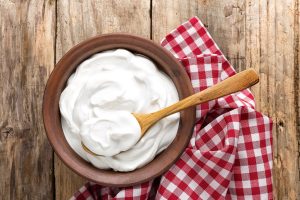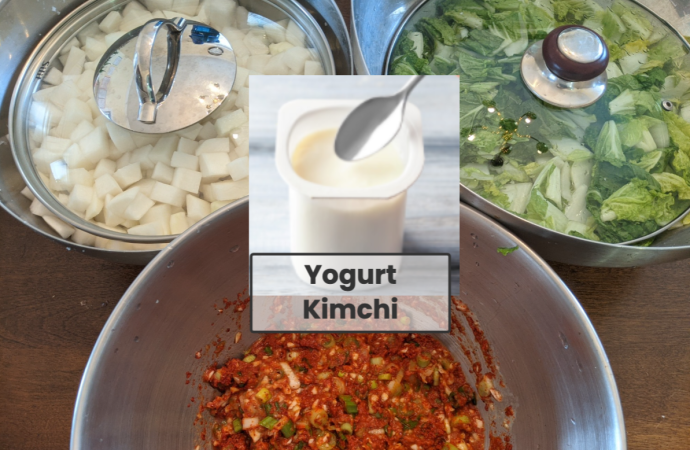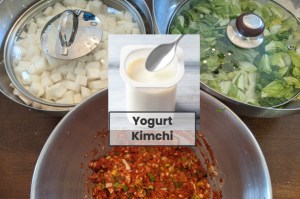The world of probiotics is a fascinating one, and these beneficial microorganisms can be found in a variety of natural sources. From the creamy allure of yogurt to the spicy tang of kimchi, each of these sources offers a unique blend of probiotic strains, making it easy to incorporate these gut-friendly organisms into your diet.
The world of probiotics is a fascinating one, and these beneficial microorganisms can be found in a variety of natural sources. From the creamy allure of yogurt to the spicy tang of kimchi, each of these sources offers a unique blend of probiotic strains, making it easy to incorporate these gut-friendly organisms into your diet. In this article, we’ll embark on a journey through the various natural sources of probiotics, exploring their distinct probiotic strains and the benefits they bring to your gut health.
Probiotics in Yogurt: Creamy and Nutrient-Rich
Yogurt is one of the most well-known sources of probiotics. It’s made by fermenting milk with specific lactic acid bacteria, which transform the milk’s sugar (lactose) into lactic acid. This process gives yogurt its tangy flavor and thick consistency.

Image by: https://www.anveya.com/blogs/top-tips/7-amazing-benefits-of-curd-yogurt-for-hair
Common Probiotic Strains in Yogurt:
- Lactobacillus bulgaricus: This strain aids in breaking down lactose and producing lactic acid, giving yogurt its characteristic texture and taste.
- Streptococcus thermophilus: Often used in combination with Lactobacillus bulgaricus, it helps ferment the milk and produces beneficial compounds.
Probiotic Benefits in Yogurt:
- Improved digestion
- Enhanced nutrient absorption
- Regulation of the gut microbiome
Kefir: The Probiotic Powerhouse
Kefir is a fermented milk drink with a thinner consistency than yogurt but packs a powerful probiotic punch. It is made by adding kefir grains to milk and allowing them to ferment.
Common Probiotic Strains in Kefir:
- Lactobacillus acidophilus: Known for its potential to alleviate digestive problems and enhance gut health.
- Bifidobacterium bifidum: A probiotic strain that may support a balanced gut microbiome.
- Saccharomyces cerevisiae: This yeast strain can offer additional health benefits, including immune support.
Probiotic Benefits in Kefir:
- Enhanced digestion
- Improved gut microbiome balance
- Immune system support
Sauerkraut: The Fermented Cabbage Delight
Sauerkraut is a tangy, fermented cabbage dish, a staple in many European cuisines. Cabbage is fermented with salt, promoting the growth of beneficial bacteria.
Common Probiotic Strains in Sauerkraut:
- Lactobacillus plantarum: A versatile strain that contributes to the fermentation process and is associated with digestive health.
- Leuconostoc mesenteroides: This strain is essential for the initial fermentation of cabbage into sauerkraut.
Probiotic Benefits in Sauerkraut:
- Improved digestion
- Potential immune system support
- Enhanced gut health
Kimchi: The Spicy Probiotic
Kimchi is a Korean dish made from fermented vegetables, primarily cabbage and radishes, and seasoned with a blend of spices. This vibrant dish offers a unique probiotic profile.
Common Probiotic Strains in Kimchi:
- Lactobacillus kimchii: A strain named after the dish itself, it’s known for its role in the fermentation process and potential health benefits.
- Pediococcus pentosaceus: Often found in kimchi, this strain contributes to its distinct flavor and probiotic content.
Probiotic Benefits in Kimchi:
- Digestive support
- Potential immune system enhancement
- Gut health maintenance
Miso: Fermented Soybean Paste
Miso is a traditional Japanese seasoning made from fermented soybeans, rice, or barley. It’s often used to make miso soup.
Common Probiotic Strains in Miso:
- Bacillus subtilis: A probiotic strain associated with digestive health and the fermentation process of soybeans in miso.
Probiotic Benefits in Miso:
- Digestive support
- Potential immune system enhancement
Fermented Pickles: A Crunchy Probiotic Snack
Fermented pickles, unlike vinegar-based pickles, are made by fermenting cucumbers in a saltwater brine, allowing beneficial bacteria to thrive.
Common Probiotic Strains in Fermented Pickles:
- Lactobacillus: Various species of Lactobacillus can be found in fermented pickles, contributing to their probiotic content.
Probiotic Benefits in Fermented Pickles:
- Improved digestion
- Gut health maintenance
https://www.mom4kidsnyc.com/wp-content/uploads/2021/02/Screen-Shot-2021-02-18-at-11.46.35-PM.png
Incorporating Natural Sources of Probiotics
Incorporating natural sources of probiotics into your diet can be a delicious and nutritious way to support your gut health. Here are some tips to make the most of these probiotic-rich foods:
- Enjoy a serving of yogurt with live cultures as a snack or part of your breakfast.
- Add sauerkraut, kimchi, or other fermented vegetables to your meals.
- Consider making kefir-based smoothies for a refreshing and probiotic-rich drink.
- Experiment with recipes that incorporate miso for added flavor and probiotic benefits.
- Snack on fermented pickles as a crunchy and gut-friendly treat.
In Conclusion: Embrace the Diversity of Probiotics
The world of probiotics is a diverse one, offering a range of natural sources with their unique probiotic strains and health benefits. By incorporating these probiotic-rich foods into your diet, you can promote a balanced gut microbiome, enhance digestion, and fortify your immune system. Embrace the variety and flavors of these sources, and you’ll be nurturing your gut health one delicious bite at a time.


















Leave a Comment
Your email address will not be published. Required fields are marked with *